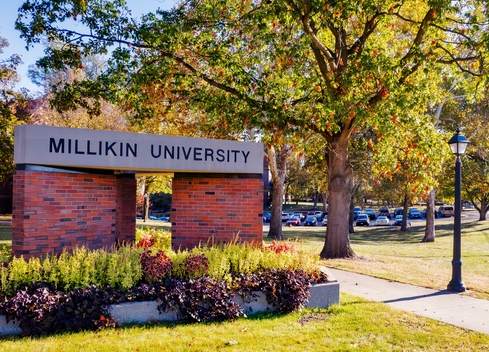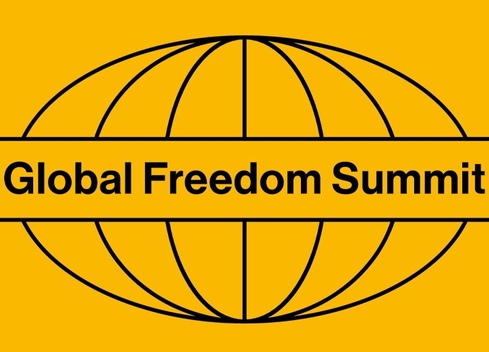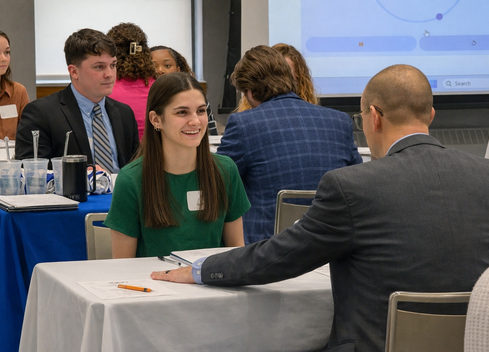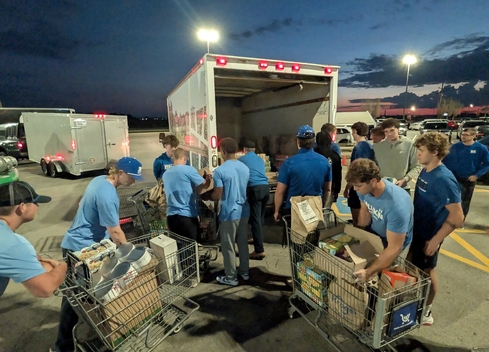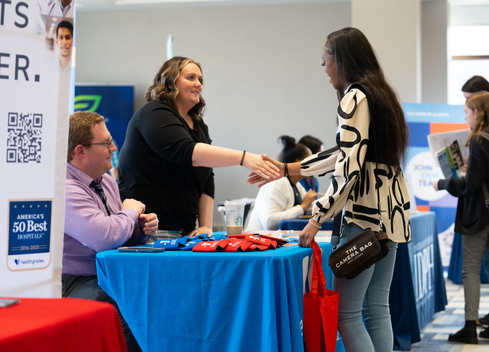| Introduction to Criminal Justice Professions | Criminal justice careers typically fall into one of two categories: law enforcement or legal. But contrary to what many may know about the career opportunities in criminal justice, it is more than just becoming a cop or a lawyer. In this course, students will be given a practical, comprehensive toolkit that easily explains the extensive operations and the scope of employment possibilities and opportunities in the criminal justice profession. They cover many criminal justice functions and career paths that are seldom discussed when preparing for a career in criminal justice. There will be a focus on how to obtain employment in a career field that fits personal strengths and aspirations and emphasizes the value of internships and service learning as tools to obtain the desired position. (CJ 100) |
|---|
| Juvenile Delinquency | What, exactly, is delinquency? Are young people becoming more delinquent/violent? Why do some youths engage in relatively high levels of delinquency and drug use? How do popular conceptions of delinquency compare to reality? Are current delinquency-control policies effective? These questions and others will be the focus of this course. Through readings, lectures, and class discussions we will explore some of the core issues in the study of delinquency and youth violence. These issues will be approached from the wide variety of perspectives that have influenced criminologists including biological, psychological, sociological, and historical perspectives. (Special attention will be given to social-psychological theories as they currently dominate the field). Cross-listed with IN251. (CJ211) |
|---|
| Deviance | This course will examine the varied behaviors considered to be deviant in contemporary western societies, the socially constructed nature of deviance, and the development of public policies for the control of deviant acts. Special emphasis will be given to the definition of deviance, the measurement of deviance, theories of deviant behavior, the deviant career and the development of social control strategies in contemporary society. Cross-listed with IN251.(CJ233) |
|---|
| Introduction to the Criminal Justice System | This course introduces students to the criminal justice system, by reviewing and understanding the roles of the three main components; police, courts and corrections. Cross-listed with IN251.(CJ235) |
|---|
| The Law of Evidence | This survey course focuses on the Federal Rules of Evidence (and in some instances, the Illinois Evidence Code), related case law, and those constitutional concepts that limit proof at criminal trials. Students will explore the origin, development, philosophy and constitutional basis of the rules of evidence used in criminal proceedings in the United States. Students will become familiar with the features of evidentiary procedures, such as real and physical evidence, relevance, burdens of proof, presumptions, stipulations, competency, privileges, cross-examination, hearsay and its exceptions, and expert opinion testimony (CJ305) |
|---|
| Restorative Justice | This course will introduce students to the theory, concept, and practice of restorative justice. After an extensive review of the tradition and history of restorative justice, and contemporary research and scholarship, students will have a performance learning opportunity to participate in a restorative justice program or activity in the local community. Course learning materials and assignments will be directed toward a cumulative assignment in which students evaluate a criminal justice program or agency in relation to its use of restorative justice principles and practices.(CJ311) |
|---|
| Crime and Public Policy | Crime in the United States has fluctuated considerably over the past thirty years, as have the police approaches to deal with it. During this time criminologists and other scholars have helped to shed light on the role of incarceration, prevention, drugs, guns, policing, and numerous other aspects to crime control. Yet the latest research is rarely heard in public discussions and is often missing from the desks of policymakers. The course is designed to review existing literature, discuss the methodological rigor of the research, identify what policies and programs the research suggests, and then point to policies now implemented that fail to reflect the evidence. Students will learn of the criminal justice system (juvenile justice, police, prisons, probation and parole, sentencing) and how broader aspects of social life inhibit or encourage crime (biology, schools, families, communities). (CJ315) |
|---|
| Judicial Process and Constitutional Issues | This course will first acquaint students with the process of judicial decision making in trial courts as well as courts of review. The binding effect of court decisions through case law precedent will be explained. The course will then shift emphasis to a discussion of court decisions regarding constitutional issues raised in criminal cases. Students will learn about the various stages of a criminal prosecution from the time of arrest through final court resolution. Opinions of the United States Supreme Court, as well as other courts of review, will be analyzed throughout this process. Constitutional issues commonly raised in criminal cases will be discussed in detail, including 4th Amendment Rights related to search and seizure, 5th Amendment Rights related to police interrogations, and the 6th Amendment Right to counsel. (CJ317) |
|---|
| Community Policing | This course will review the current focus on community based policing and its use in contemporary society. Students will be asked to consider whether this is a new approach or a return to historic policing approaches. Students will be expected to identify the effectiveness of emerging practices that focus on community based policing. Students will learn to identify the differences between generalist and specialist applications of community policing tactics.(CJ318) |
|---|
| Criminal Investigations | This course is designed to introduce the student to the unique aspects of criminal investigation, as distinguished from other areas of police service. Students will explore investigative theory, the collection and preservation of evidence, sources of information, concepts of interviewing and interrogation, the use of forensic sciences, and trial preparation. Emphasis will be placed on investigative techniques employed, identification of motives and modus operandi, and the use of informants. Gathering information through interviews and interrogations as well as the legal aspects of crime solving will be integral parts of the focus of the course. This course also examines concepts and methods of investigation of specific forms of crime (For example, homicide, rape, and robbery). (CJ340) |
|---|
| Forensics | This course provides students with a basic understanding of the nature of physical evidence and its role in the criminal justice system. Students will explore basic scientific and legal principles involved with the identification, collection, preservation and analysis of forensic evidence. Students will be exposed to specific items of physical evidence including their components, manufacture, methods of analysis, and value in case work. Students will engage in the application of specific methods in an effort to successfully resolve various criminal justice problems. (CJ355) |
|---|
| Criminology | Through the lens of major criminological theories we will explore the criminal justice system in America. Some of the topics to be included in this sociological inquiry include an extensive review of theory, contemporary criminal law/philosophy, the current face of corrections today, and cutting edge alternative paradigms that radically challenge existing notions of criminality. (CJ361) |
|---|
| The Correctional Process | The focus of this course is to introduce the student of criminal justice to the American correctional system. This course analyzes the development of correctional practices in the handling of those convicted of crimes from early to modern times. Students will explore correctional institutions including the subject areas of penology, correctional science, the sociology of punishment or penal sanctions, and the study of social control. Students will come to understand exactly how correctional institutions implement the incarceration function for society, and in turn, are both shaped and shapers of culture. This course will also consist of an in-depth analysis regarding subcomponents (e.g. bail, jail, probation, different types of prisons, the death penalty, community-based programs, parole, release and reentry) of the correctional “subsystem” in criminal justice. An appreciative understanding will be sought by requiring students to think critically about life in prison, and the socio-cultural or psychological aspects of inmate “society.” (CJ410) |
|---|
| Criminal Justice Research and Analysis | This course provides an overview of social science research methods, applied statistical techniques, and statistical software used in the study of criminal justice. Students will engage in problem definition, proposal writing, study design, information gathering, literature reviews, data analysis and interpretation, as well as writing and presenting research on criminal justice. Particular attention will be given to research design, sampling techniques, interviewing, questionnaire or survey instrumentation, and observation-participation techniques. (CJ415) |
|---|
| Victims in Society | This course focuses upon crime and the justice system from the victims’ perspective. Students will study and gain understanding of the legal, social, psychological and economic perspectives, approaches and consequences of victimization from an individual, institutional, and legal point of view. This course will examine the levels, dynamics and major correlates and consequences of primary and secondary criminal victimization, and the appropriateness of a variety of formal and informal responses aimed at preventing and/or remedying them. Emphasis throughout the course will be upon developing students’ skill at systematically clarifying the definition of those problems and proposed or existing responses, as well as understanding and applying criteria and methods by which alternative responses might be evaluated. (CJ420) |
|---|
| Criminal Justice Practicum | This course is designed to offer students opportunities to further develop their knowledge of research and practice in the field of criminal justice, as distinct from teen restorative justice. Students will work with the criminal justice program to develop skills relevant to the workplace, develop personal contacts, expand upon networking strategies, and to have a close and personal view of how criminal justice is practiced in Macon County. This course is designed to provide students with practical learning opportunities with Criminal Justice, Legal, and Social Service agencies within Macon County (CJ470) |
|---|
| Teen Justice Practicum | This course is designed to offer students opportunities to further develop their knowledge of research and practice in the field of teen justice, as distinct from criminal justice. Students will work with the teen justice program to develop skills relevant to the workplace, develop personal contacts, expand upon networking strategies, and to have a close and personal view of how restorative teen justice is practiced in Macon County. (CJ471) |
|---|

